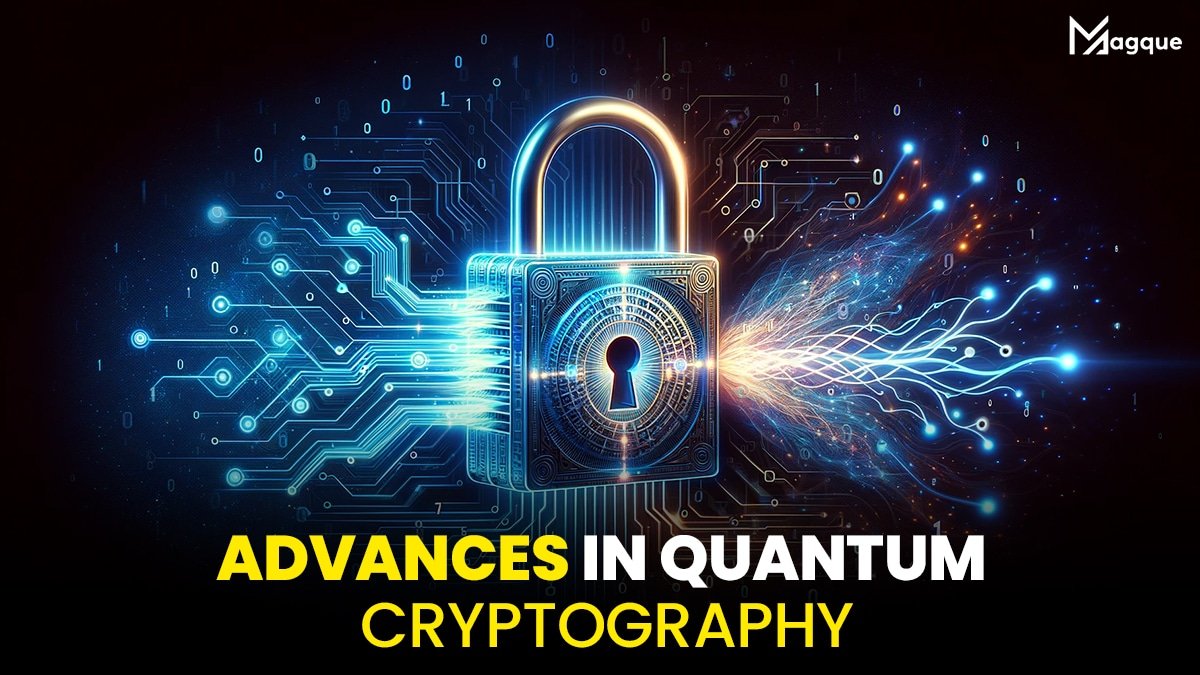Have you ever wondered how secure your data truly is? In today’s digital age, where information travels at the speed of light, ensuring the safety of sensitive data is paramount. Enter quantum cryptography, a field that’s shaking up the world of cybersecurity with its groundbreaking innovations.
Quantum cryptography utilizes the principles of quantum mechanics to create unbreakable codes, offering a level of security that was once thought impossible. Unlike traditional encryption methods, which rely on complex mathematical algorithms, quantum cryptography harnesses the power of quantum entanglement and superposition to encode information impervious to hacking attempts.
The Rise of Quantum Computing
With the advent of quantum computing, the need for quantum cryptography has never been more urgent. Traditional encryption methods, which rely on factoring large prime numbers, differ from quantum computers’ sheer processing power. These machines can perform calculations at speeds unimaginable to classical computers, posing a significant threat to conventional encryption techniques.
Breaking Down the Barrier
But how exactly does quantum cryptography work? At its core, it relies on the principles of quantum key distribution (QKD). This process involves the transmission of quantum-encrypted keys between two parties, known as Alice and Bob. By exploiting the properties of quantum mechanics, such as the Heisenberg Uncertainty Principle, these keys can be securely exchanged without the risk of interception.
The Promise of Unbreakable Security
The implications of quantum cryptography are vast. The potential applications are endless, from securing financial transactions to protecting sensitive government communications. With quantum-resistant algorithms already in development, the future of cybersecurity looks brighter than ever.
Embracing the Future
As we continue to embrace the digital revolution, staying one step ahead of cyber threats is essential. By harnessing the power of quantum cryptography, we can ensure that our data remains safe and secure in an increasingly interconnected world.
In conclusion, the advancements in quantum cryptography are poised to revolutionize the field of cybersecurity. With its unparalleled level of security and potential for innovation, quantum cryptography holds the key to unlocking a safer digital future.
Magque is committed to staying at the forefront of these advancements, providing cutting-edge solutions to safeguard your most valuable assets. Stay tuned as we continue to explore the exciting world of quantum cryptography and its transformative impact on the way we secure information.
FAQs
Q1. What is quantum cryptography, and how does it differ from traditional encryption methods?
Quantum cryptography utilizes principles from quantum mechanics to create secure codes, while traditional encryption relies on mathematical algorithms. Unlike conventional encryption, quantum cryptography offers unbreakable security due to its reliance on quantum properties like entanglement and superposition.
Q2. How does quantum cryptography protect against cyber threats like hacking and data breaches?
Quantum cryptography employs techniques like quantum key distribution (QKD) to exchange encryption keys between parties securely. By leveraging the inherent uncertainty of quantum states, these keys remain impervious to interception, ensuring the confidentiality and integrity of transmitted data.
Q3. What role does quantum computing play in the evolution of quantum cryptography?
Quantum computing presents both challenges and opportunities for quantum cryptography. While quantum computers have the potential to break traditional encryption algorithms, they also enable the development of quantum-resistant cryptographic techniques. As quantum computing advances, so does the need for robust quantum cryptographic solutions.
Q4. Are there any practical applications of quantum cryptography in today’s world?
Quantum cryptography has practical applications in various fields, including finance, telecommunications, and government communications. Financial institutions use it to secure transactions, while government agencies use it to protect classified information.
Q5. Is quantum cryptography accessible to businesses and individuals or limited to research and government sectors?
While quantum cryptography has historically been confined to research labs and government agencies, technological advancements make it more accessible to businesses and individuals. Companies specializing in cybersecurity offer quantum cryptographic solutions tailored to meet the needs of different industries, ensuring widespread adoption and implementation.
Read Also This – Quantum Computing Breakthroughs in 2024













